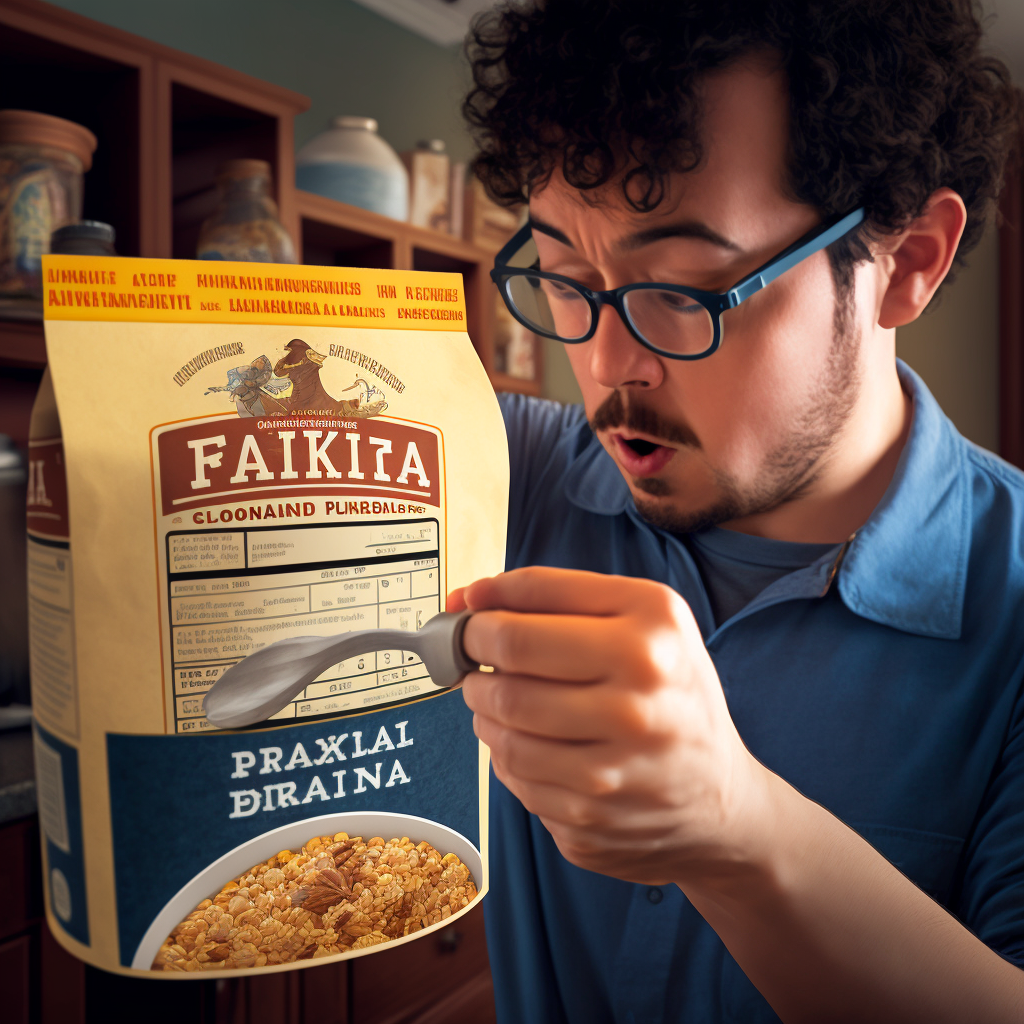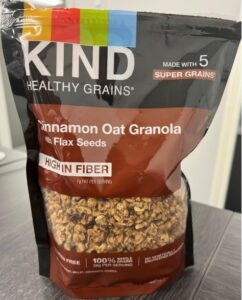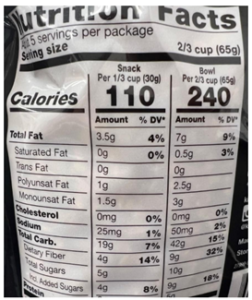
KIND Nutrition Label False Advertising Class Action
Consumers are increasingly aware of the importance of reading labels and understanding what is in the products they buy. However, a recent class action lawsuit against KIND LLC for false advertising of its “High in Fiber” granola bags raises questions about how companies are allowed to present nutrition information to consumers.

Aimen Halim, the plaintiff in the lawsuit, purchased a KIND Granola product believing it to be a snack rather than a cereal due to the “High in Fiber” claim on the label. The product contains only 4 grams of fiber, 14% of the recommended daily intake (RDI), when eaten in its correct serving size of 30 grams. However, the Nutrition Facts panel states that the serving size is 65 grams, which is two-thirds of a cup, and based on this serving size the product has 9 grams of fiber, exceeding the 20% RDI.
The FDA requires that when nutrition information is presented in two columns, it must be “conspicuously disclosed” which column is the basis for the claim. The disclosure on the Nutrition Facts panel is “at the bottom of the panel in small print and not prominently or conspicuously disclosed” (Case 1:22-cv-10979 Document 1 Filed 12/30/22 Page 3 of 11). Halim claims that he purchased the product believing it to be high in fiber, but was misled by KIND LLC’s failure to disclose the basis for the high in fiber claim at the bottom of the label in small text, which is difficult to read.

Halim is now suing KIND LLC for false advertising and seeking damages for the false and misleading representations, as the product is sold at a premium price. He alleges that KIND LLC breached its express and implied warranties and had a duty to disclose and/or provide non-deceptive promises, descriptions, and marketing of the product. He is also seeking certification of two classes, one for those in Illinois and New York, and one for those in eight other states, to determine whether Defendant’s representations were misleading and if class members are entitled to damages.
“Plaintiff paid more for the Product than he would have had he known the representations and omissions were false and misleading, or would not have purchased it,” said Halim. “Plaintiff alleges that Defendant breached its express and implied warranties, and had a duty to disclose and/or provide non-deceptive promises, descriptions, and marketing of the product.”
This case is a reminder to consumers to always read labels carefully and make sure that the product they are purchasing is what they think it is. Companies have a responsibility to provide accurate and transparent information to consumers, and should be held accountable when they fail to do so.
